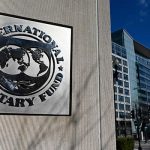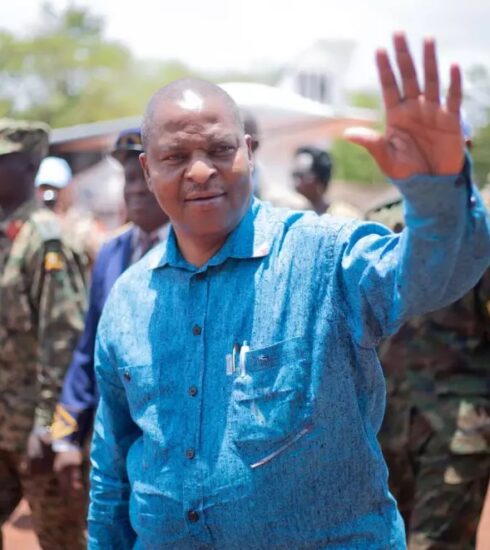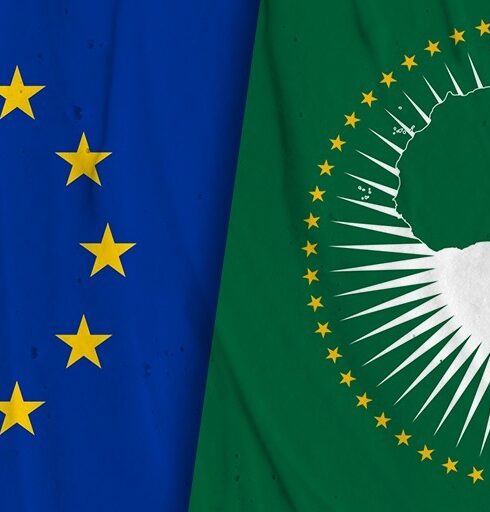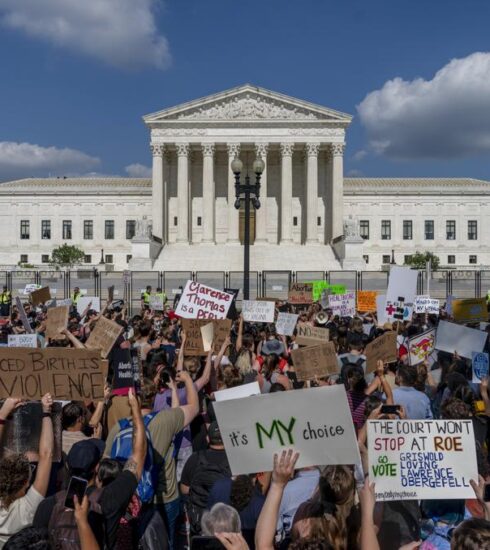The United States government announced recently that it is preparing a long-term assistance program for the Ivory Coast, Benin and Togo as concerns are being raised about the possibility of jihadi violence in the Sahel spilling into coastal West Africa.
It’s no secret that the West African Region has been bedeviled by protracted terrorist attacks across the sub-region. From Nigeria to Burkina Faso, Niger to Cote d Ivoire, Mali to Guinea, the Boko Haram, Islamic State in West Africa (ISWAP) and other terror allies have wrecked unprecedented havoc on the hapless citizens of the region with massive losses in lives and property and it appears there is no end in sight to this scourge.
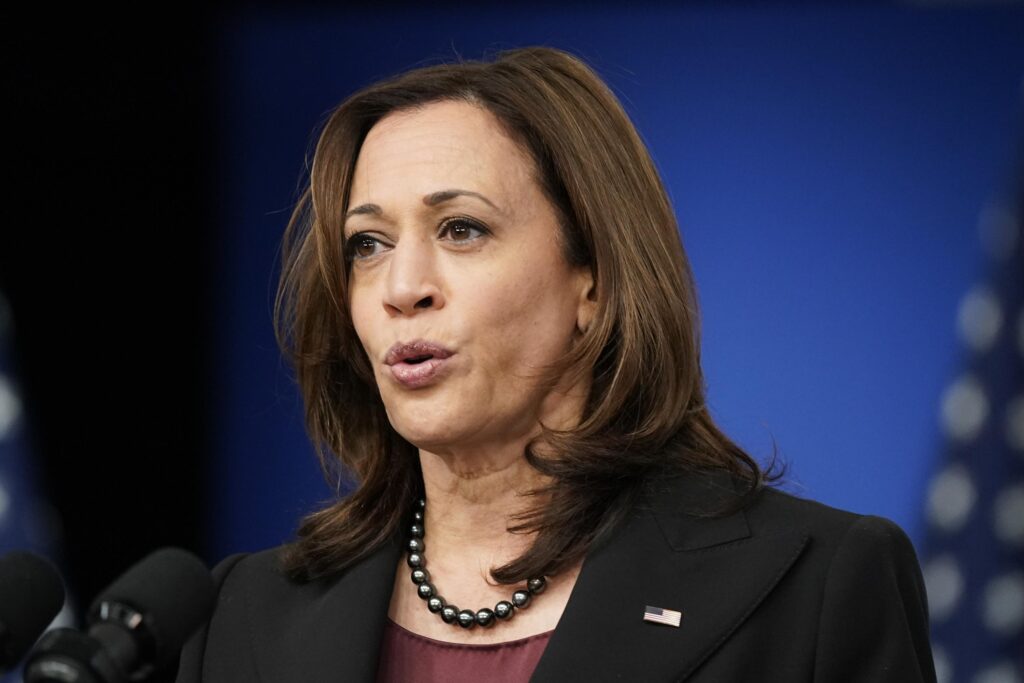
U.S. Vice President Kamala Harris has pledged the support of the U.S government in helping to combat terrorism in West Africa. Photo -NDTV
The Sahel region, the Lake Chad region are replete with unending episode of bloodletting perpetrated by the terrorists and insurgents just as the Gulf of Guinea is being threatened by pirates.
United States officials have said Western support was also critical to halting Russia’s Wagner mercenary group, which has made major inroads in violence-torn Sahel countries, including forming an alliance with Mali’s military junta.
Vice President Kamala Harris, who visited Ghana recently as part of a growing U.S. push in Africa, promised $100 million over 10 years to reinforce resilience in coastal West Africa. State Department officials are said to be looking at additional funding, including some from the counter terrorism budget.
In a new global strategy to prevent conflict and promote stability, President Joe Biden’s administration has identified coastal West Africa as a priority for the coming decade.
According to US intelligence reports, the Sahel to the immediate north had experienced more terrorist attacks than any other region and officials feel that it was critical for them to act swiftly in order to “prevent violent conflicts from emerging or further spreading across the region.”
While coastal cities connected to the world through seaports have been unscathed, violence has been rising in areas bordering Mali and Burkina Faso.
“It’s a significant and burgeoning threat,” said Michael Heath, the deputy assistant secretary of state in charge of West Africa.
“It’s something of concern to us because the capabilities of the governments in place — they’ve never faced a threat like this before,” he told the press.
“They’re trying to cope with this, and we’re trying to see what kind of tools they need,” said Heath, who recently returned from a trip to the region with other State Department officials to assess immediate needs.
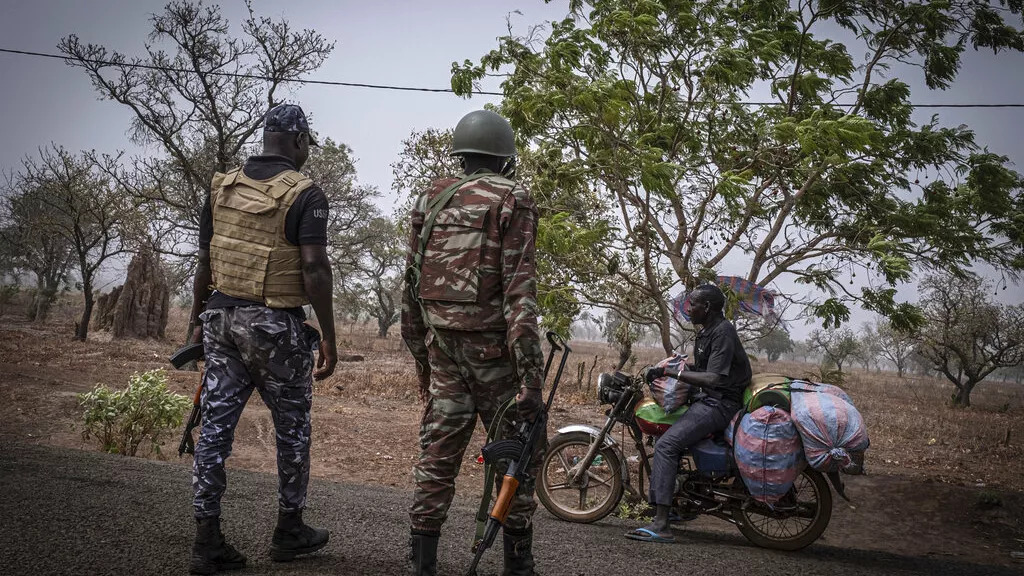
A Beninese policeman and soldier stop a motorcyclist at a checkpoint. Photo -AfricaNews
Since 2022, more than 40 terrorist attacks have been recorded in Benin and Togo. The attacks in both countries witnessed the death of 18 soldiers and over 170 civilians. Further west, Côte d’Ivoire, which had already been hit hard in 2016 by the Grand-Bassam attacks, has been trying for years now to repel Hamza Katiba’s men, who came from Burkina Faso and had already successfully infiltrated the Comoé Park region.
Fears that the jihadist threat might spread in West Africa, which many experts and intelligence services had foreseen several years ago, are now a reality as the Gulf of Guinea is the new target. The three coastal countries are now confronted with these armed group fighters from Mali and Burkina, mainly those affiliated with the Groupe de Soutien à l’Islam et aux Musulmans (GSIM).
Concerns in the Sahel about violence as well as Russia have grown in the months since France ended an eight-year campaign against jihadis, which some critics faulted as overly focused on military solutions.
U.S. officials are of the opinion that coastal West Africa would not be seeing violence without some form of spill over from the north, but that instability can also be attributed to local factors and competition for resources as climate change aggravates scarcities.
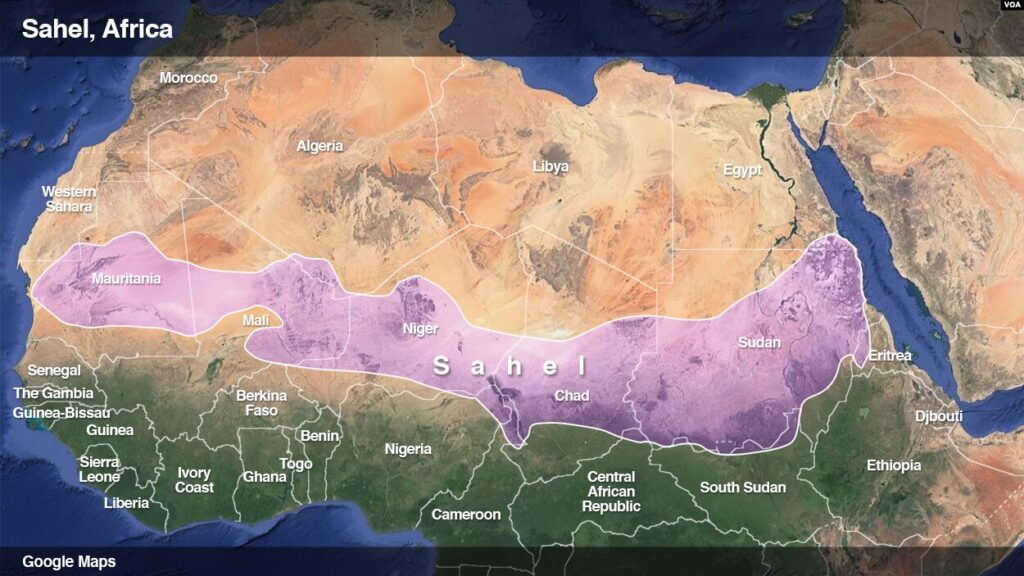
Africa’s Sahel region
U.S. officials have also said assistance would focus in part on addressing economic gaps that aid extremists in recruiting.
“We want to obviously help these governments who are more interested in a holistic approach and good governance addresses the problems of the north, where the resources are sparser,” said Gregory LoGerfo, a senior State Department counter terrorism official who was on the U.S. Vice Presidents trip.
One key area the U.S will be focusing on is, helping West African governments build their legal systems so they can distinguish between legitimate refugees fleeing the Sahel and security threats.

UN Police Officer meeting with residents in the Menaka Region of north-east Mali. Photo- MINUSMA Gema Cortes
“There are a lot of people with family ties across borders in Burkina Faso and back and so forth,” LoGerfo said. “You want a management system where you’re not shutting off families or economies, but you also have to address the security problem.”
There is no doubt that the future of the West African region is at stake, and it currently needs all the help it can get in combating the terrorism scourge. Anything short of that paints a very gloomy picture for the region.


